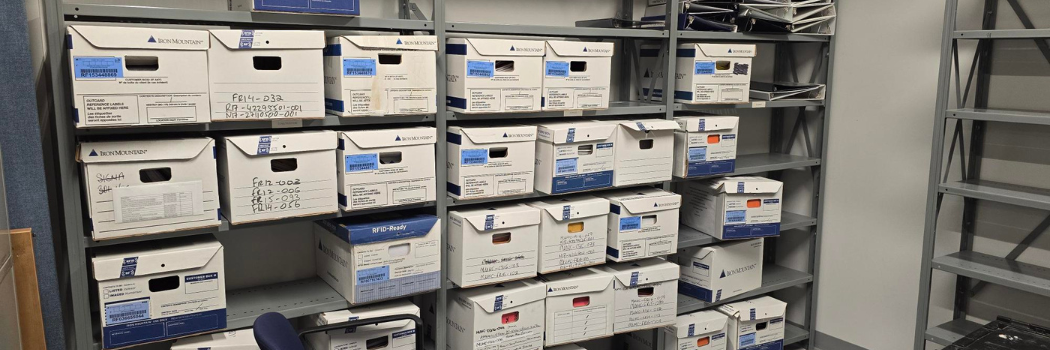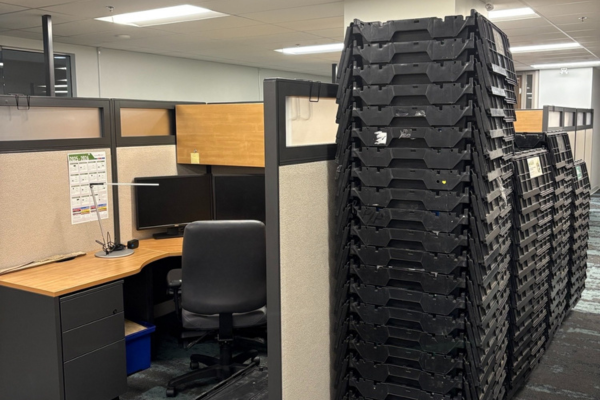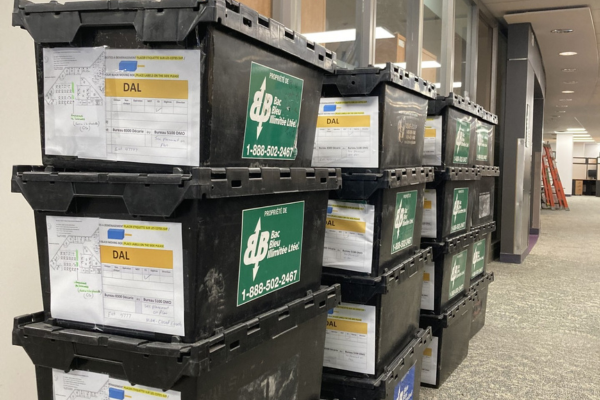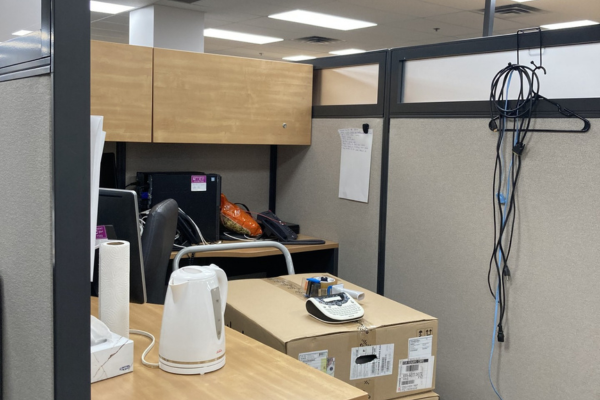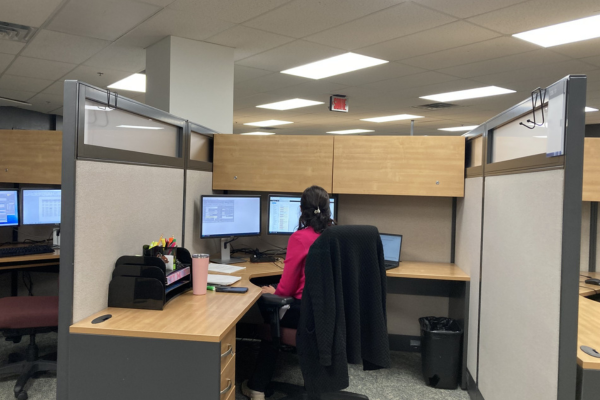Turning office moves into opportunities for sustainability
When you think of sustainability, office moves probably aren’t the first thing that comes to mind. But at the MUHC, they’ve become a surprising opportunity to rethink the way we do things.
Sustainability means finding ways to meet our needs today without harming future generations. As the MUHC becomes more aware and committed to sustainability, we’re changing the way we approach projects like office moves—and in the process, discovering smarter, more responsible ways to reduce waste and make better use of resources.
Over the past year, the Planning and Project Management team has coordinated several major moves — Human Resources, Telehealth, Procurement and Logistics, and Finance — while keeping sustainability front and centre.
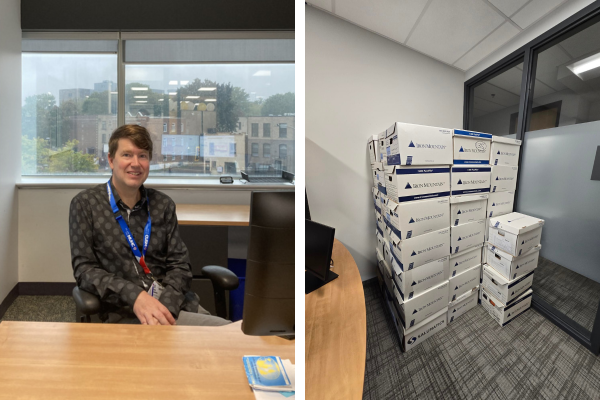
Reuse before buying
The Planning team has made it a priority to reuse existing items for the recent moves, avoiding the purchase of new furniture.
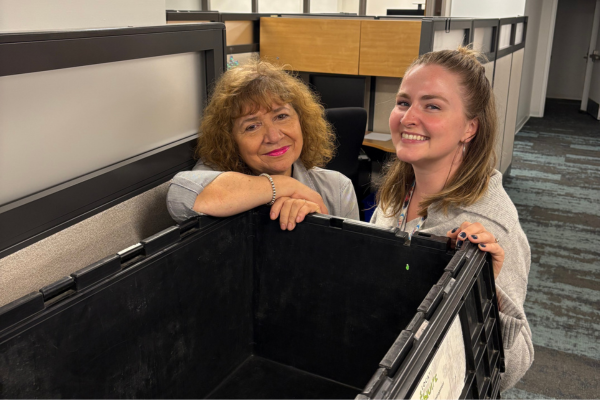
“When we moved teams into 5100 de Maisonneuve and 2155 Guy, those spaces were already furnished,” explains Teresa Di Bartolo, Manager of Planning and Project Management. Likewise, when Procurement and Logistics (DAL) moved onto a floor already occupied by Information Services (DRI), the space was already equipped, which also cut down the number of transport trips required to move items around.
When budgets allow, old lighting is also replaced with energy-efficient LED lights, creating a warmer, brighter ambiance and reducing strain on the eyes. During this project, over 400 lights were upgraded across both sites, further enhancing sustainability efforts.
Furniture has found second lives across the MUHC — including the Simulation Centre — as well as in local schools and even international projects. “We’re not buying anything and throwing away almost nothing,” adds Planning Advisor, Pierre-Étienne Fortier.
For example:
- Blinds at 8300 Decarie in good condition were reinstalled elsewhere.
- Office chairs, desks, and other pieces were repaired, redistributed, or donated.
Declutter first
Before each move, teams are asked to downsize. “Gone are the days of eight filing cabinets per person,” jokes Teresa.
With support from Document Management, outdated paperwork is archived, digitized, or securely destroyed. “With the HR move to 5100, we filled the equivalent of 22 Iron Mountain bins,” notes Planner Rosemarie Lalonde.
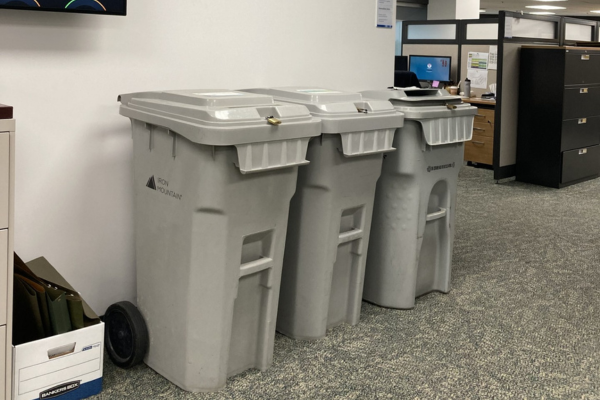
The shift also means less paper use overall. “Once teams relocate, they often share offices and many work in hybrid mode. People bring fewer personal items and print much less,” she says.
The HR team, for example, went from occupying two full floors at 8300 Decarie to less than one floor at 5100 de Maisonneuve. Same staff, but fewer offices and less space, thanks to smarter planning.
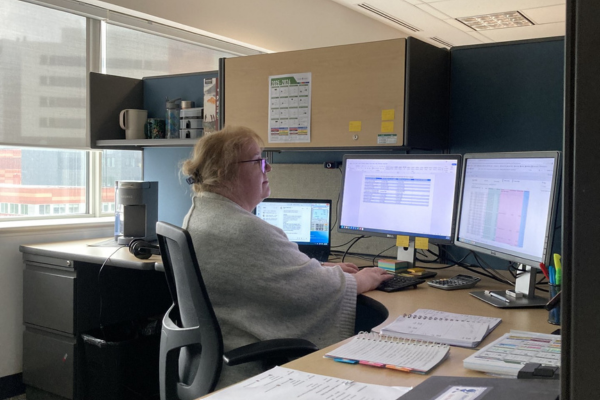
From clutter to good causes
Office supplies, such as surplus hanging file folders, binders, envelopes with old addresses, and ink stamp pads, are no longer tossed. They’re packed up and sent to schools, along with samples received from suppliers — melamine finishes, fabrics, vinyl, paint chips, wood finishes, and more — which are used for arts and crafts. “It’s amazing what schools can do with old materials,” says Rosemarie. “What’s junk to us can be inspiration to someone else.”
Pierre-Étienne adds: “It started during the pandemic. Departments had stockpiles of supplies, some expiring, so we searched for places to give them.”
Some examples:
- La Commission scolaire de Montréal, which collected bookshelves and filing cabinets.
- The Maison d’Haïti, which received furniture to support refugee families.
- New international clinics, including projects in West Africa.
“Exam tables and bulky items — old beds, stretchers, or large desks that no longer fit in our smaller or shared offices — may not be needed here at the hospitals,” he explains, “but they can be essential elsewhere.” Expired clinical supplies from Prevention and Health Promotion were donated to the MUHC Simulation Centre at 5100 de Maisonneuve, 4th floor.
Cutting e-waste too
Hundreds of unused desk phones and cables have been recovered, reused, or donated across the network. “From the HR move alone, we recovered over 150 monitors and 400 phones,” says Rosemarie.
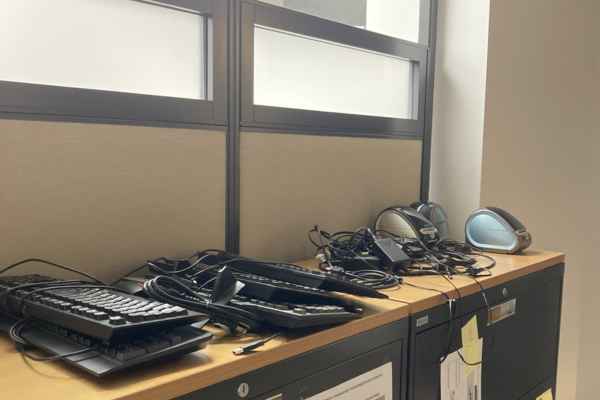
Smarter transport
Even the way moves happen has changed. “We choose electric trucks when available and plan routes to reduce trips,” says Pierre-Étienne. “Sometimes we hit three sites in one day. It takes less time and energy and is more efficient.”
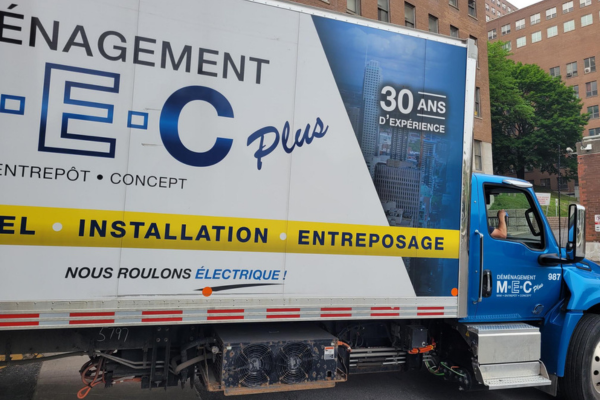
The team has also invested in sustainable development training and attended conferences to bring best practices back to the MUHC.
A shift in mindset
It’s a grassroots effort. “We’re a small team — just 11 people — but we’ve taken ownership,” says Teresa. “You don’t need a big budget to make sustainable choices. You just need to be intentional.”
“These moves are becoming the new standard for future relocations,” adds Rosemarie. The team hopes their approach inspires others.

